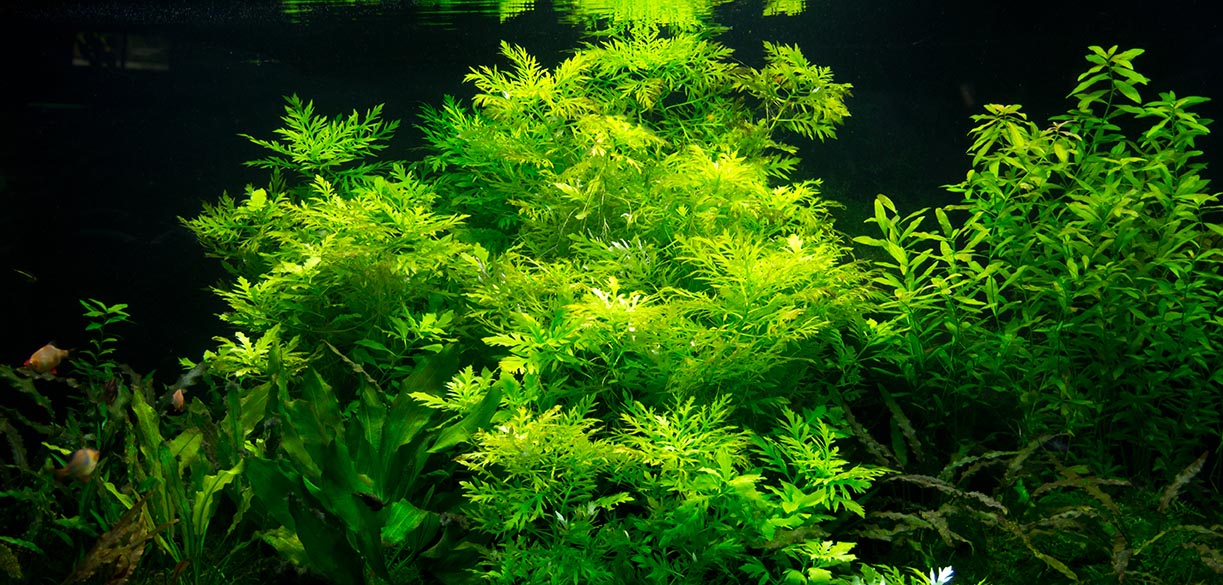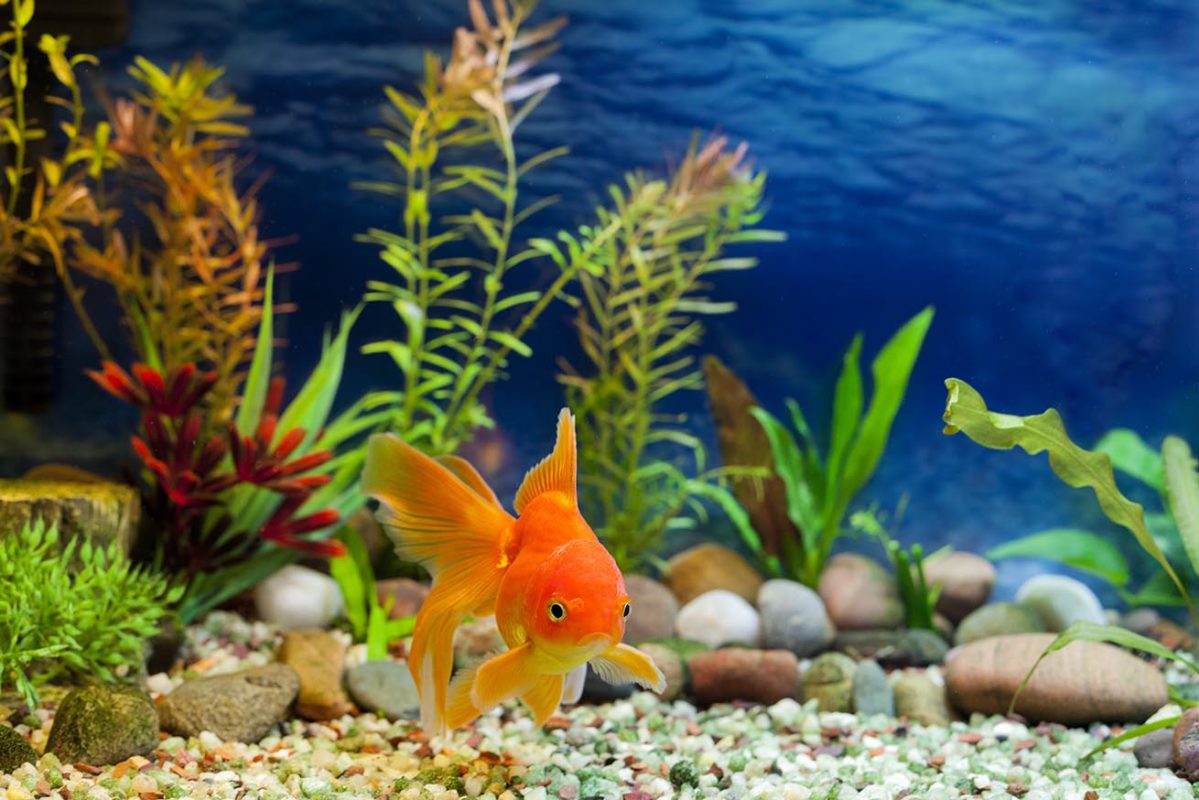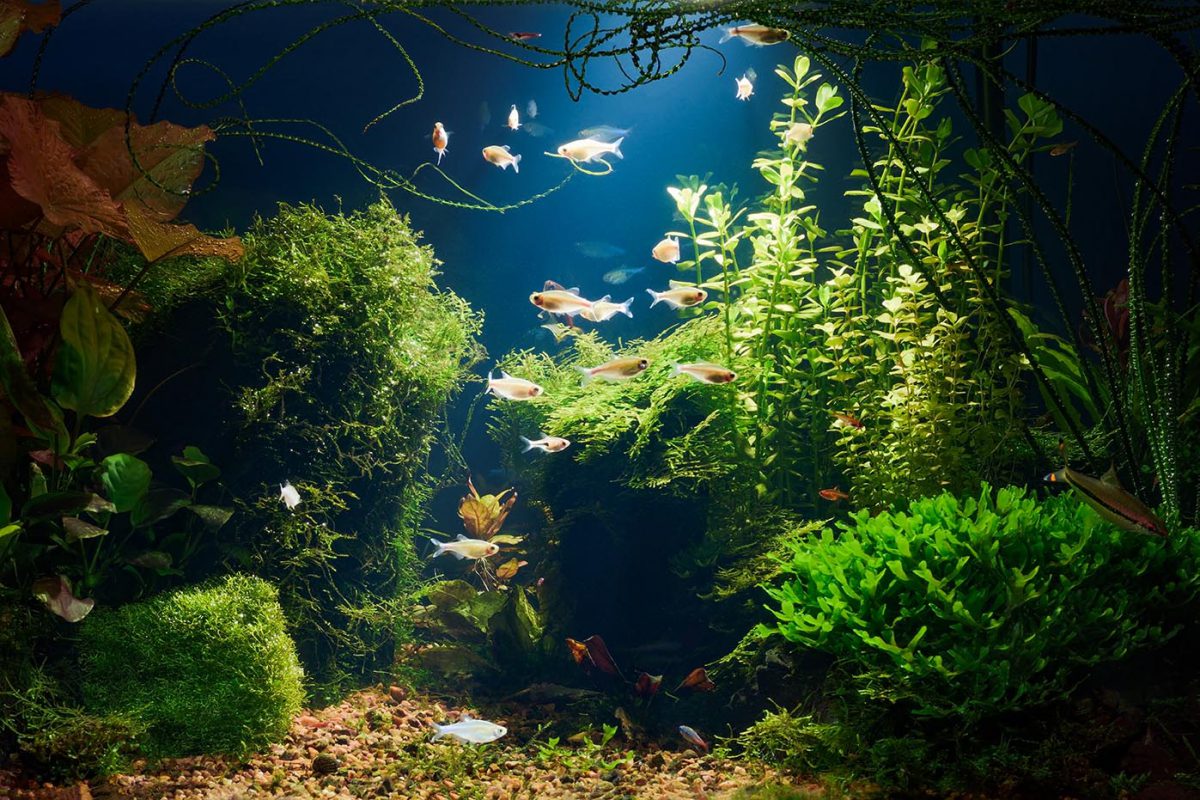An aquarium if left alone can soon become a rather mucky place!
The solid wastes released from the fish will accumulate in the gravel and the filter, live plants can shed leaves which will decay in the water and of course the dreaded algae can start to grow coating glass, rock and other surfaces. Keeping the tank clean is not just about aesthetics however, it really is vital for the health of your fishes, invertebrates and plants.
Accumulating organic matter, (fish faeces, plant debris etc), will slowly decay in the water. This decay can deprive the precious filter bacteria of oxygen, as well as depriving the fish and invertebrates in the tank of oxygen too. This decaying organic matter can also encourage the growth of opportunistic fish pathogens, not the sort of organisms we want in the tank. Ultimately the decay of this waste will liberate nitrates and phosphates into the water which are likely to encourage blooms of algae. So we can see, as fishkeepers we are strongly incentivised to keep the tank clean!
It is tempting to rely on a good filter to keep the tank clean. If all the solid waste gets trapped in the filter sponges then surely the tank is clean? This is not the case as this organic waste is still decaying in the tank water! It is just not visible in the tank. All the problems outlined above will still arise, plus the heavy loading of organic matter in the filter can lead to the delicate ammonia and nitrite oxidising bacteria being displaced from the filter by more competitive ‘heterotrophic’ bacteria.

Thus keeping your filter clean is vital, traditional wisdom tells us to clean the sponges in the filter in a bucket filled with tankwater once every week or so – depending on the number and type of fish and the feeding rate in the tank. Small filter sponges, such as those in a Tetra IN Plus range must be cleaned in this way – never clean the sponges in tapwater as those precious ammonia and nitrite oxidising bacteria will be killed off by the chlorine in the tapwater. This will leave your fish tank without a biological filter which is incredibly dangerous for your fishes and invertebrates. Larger canister filters such as the TetraTec EXplus range have distinct sponge and biological stages. Hence really messy sponges could be cleaned in tapwater, but none must be allowed anywhere near the biological filter stage.
If in any doubt, simply clean your sponges in a bucket of aquarium water.

Another part of the tank where solid wastes will accumulate is the substrate. Basic gravel substrates can be cleaned with a gravel siphon such as a TetraTec GC. These siphon water out of the tank, lifting particles of solid waste with them. The flow can be regulated with a tap to ensure it is of the correct rate to lift solid wastes but not the gravel itself. Planting substrates can be more difficult to clean as we do not want to disturb plant roots and the layering of iron-rich substrate. Use of a length of 5mm diameter airline hose to remove visible solid waste from the substrate surface is the best method.
With a clean substrate and filter, the next area to focus on is the glass. Algae magnets such as a TetraTec MC M allow you to clean the glass without getting your hands wet. More stubborn growths of green spot algae can be removed with a mounted blade cleaner such as a TetraTec GS. Just be careful not to scratch the glass or damage the silicone sealant at the corners of the tank. Finally tank glass and aquarium ornaments can be cleaned safely and effectively with TetraTec Easywipes.
In summary, keeping your tank clean is not just about looks! It is vital for the long term health and good water quality in your tank – happy cleaning folks!

